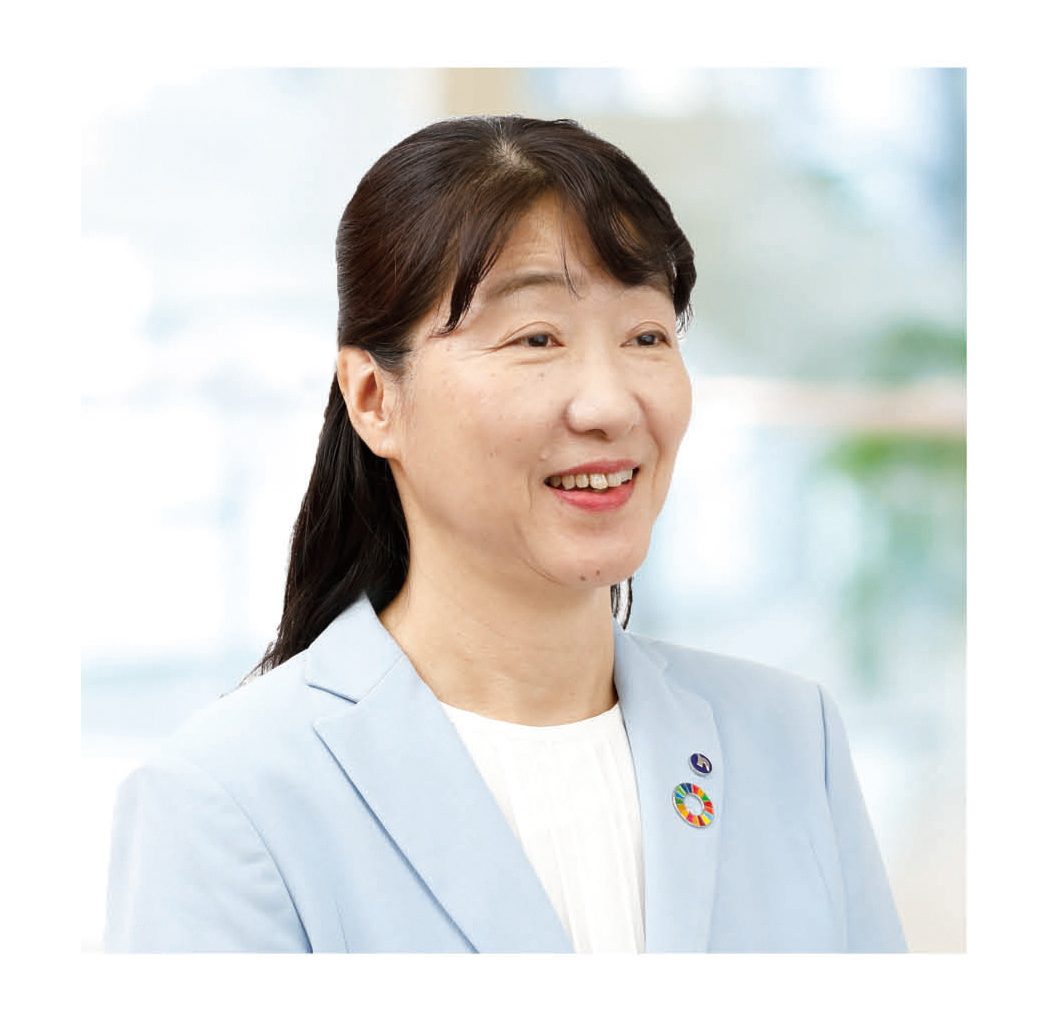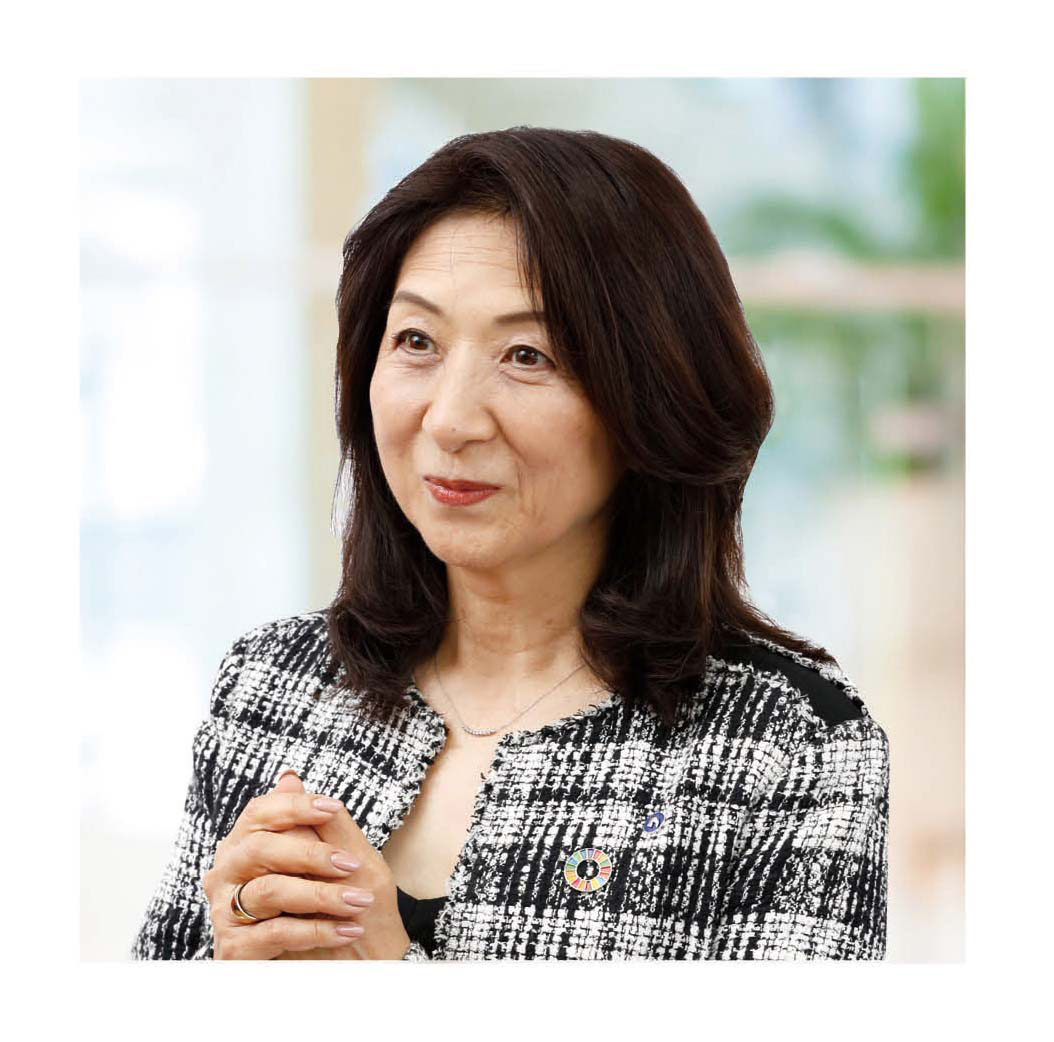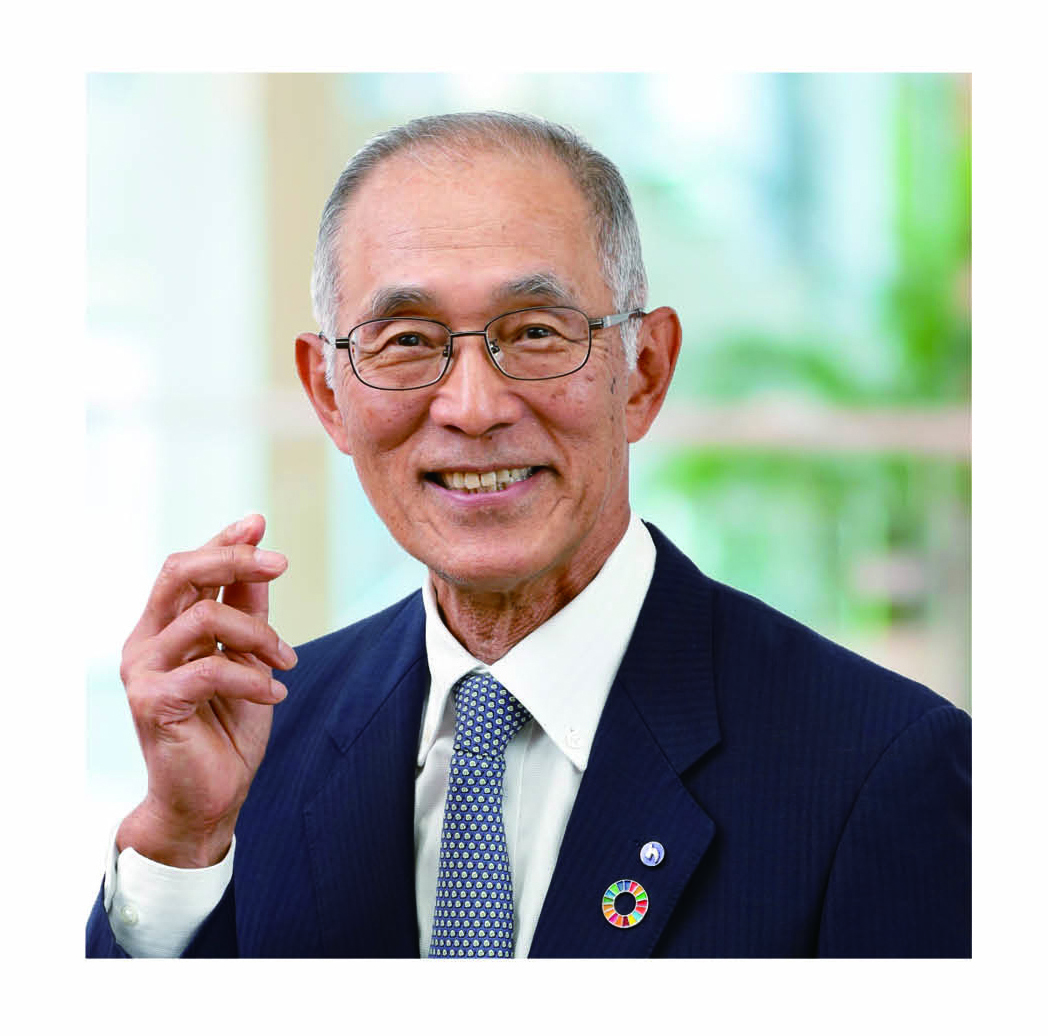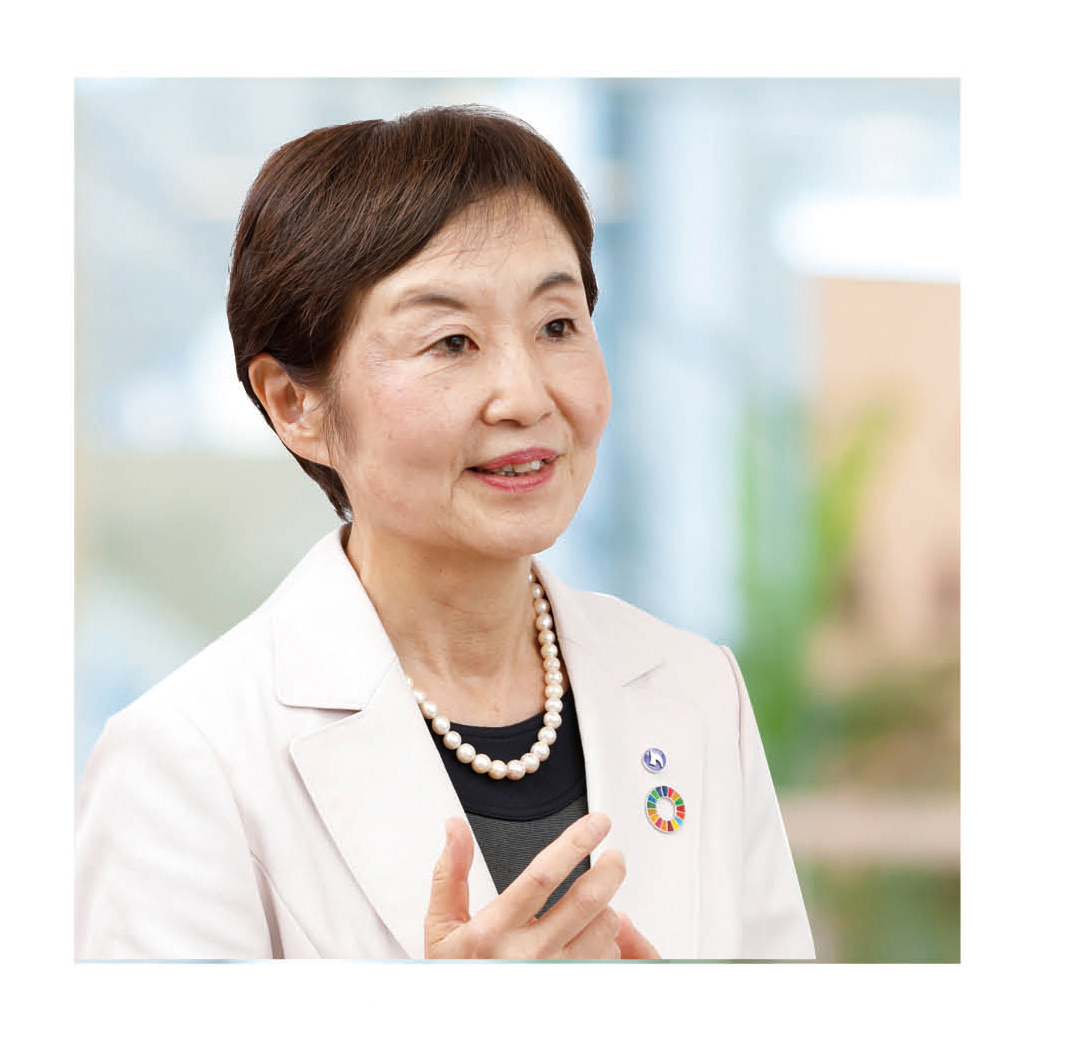With a view to achieving sustainable growth on a global scale, the Outside Directors shared with us their candid views on topics such as ideal leaders, the kind of human resources needed by Nippon Shinyaku, and the issues the Company should address going forward.
Strategically developing “human resources with an edge” for taking on global expansion

The Nominating Committee and Remuneration Committee has discussed the drafts presented, received reasonable and convincing explanations, and reported that it has no objections. However, the method of selecting candidates and the policy for determining their remuneration will remain fuzzy until the committee considers the kind of person sought in the human resources who will take on management of the Company and the policy for their development―not as isolated points of consideration but as a strategically drawn line. I made this point at the last Nominating Committee meeting.
I also believe that there needs to be a company strategy for decisions about human resources and their remuneration. The Company’s overall position on human resources is being discussed in preparation for the formulation of the 7th Medium-term Management Plan. There should be strategic discussions suited to its position. For example, there will be more risk than ever before in achieving the global expansion that Nippon Shinyaku has in view. It would be difficult for one top executive to address all of this risk solitarily. A wide breadth of knowledge is essential. The contribution of the Board of Directors will improve dramatically once all Directors can see and discuss business from the same perspective as management.

The top management of a company must have the management knowledge to steer the company’s responses to changes in the external environment, the strong leadership skills to respond flexibly and quickly, and the charisma to get others involved. For the Board of Directors to support this, it is first necessary to discuss the skills matrix. I feel that the skills required of Nippon Shinyaku’s Directors should be examined and itemized, and that the Directors in charge of each division should take a bird’s eye view of the entire Company, not just the division they are in charge of, and have candid discussions from both of these perspectives.

If that can be achieved, it will lead to a group leadership system where the top executives are not the only ones thinking about management. Today, there are many companies where people with scientific backgrounds study management and serve as presidents. In the future, Nippon Shinyaku might also have top executives who experienced technological evolution firsthand. However, even if we promote in-house development of top management, they will not necessarily always be coming from inside the Company forever. I hope that the Company will look 10 to 30 years into the future from various perspectives and decide on guidelines and strategies concerning human resources in a highly transparent manner.
No topic at Board meetings is more timeconsuming than the topic of human resources strategy.
Nippon Shinyaku employees are highly praised as “good people” both internally and externally. While retaining those good qualities, I believe that they need to adapt to changes in the environment and become versatile human resources.
There has been a lot of talk at recent Board meetings about the need for “human resources with an edge,” or in other words, “human resources of a different nature.” Even in the Company, a radical reform of the personnel system is underway, and I sense that employees are expected to break out of the “good people” box and grow more as individuals.
I expect that many employees will be inspired by the process of midcareer hiring that is now being actively promoted, bringing in different ways of thinking and a willingness to change. Job-based employment is also being introduced as part of the personnel system reform. I agree with President Nakai that it is important to write a job description that leads to employees’ growth. I believe that job-based employment may lead to “human resources with an edge” because, in accomplishing your assignments, you must have the ability to see for yourself which parts of the job should take priority and which parts you should let slide depending on the situation.
Alternatively, it can also be a clue for employees to start thinking about their own careers. The Company must clarify what kind of human resources it needs, develop a system that allows for fair evaluation, and promote the training of human resources. Employees have the right to choose their own careers, and they have the option to choose the environment that suits them best.
In terms of evaluation, the current remuneration system for Directors may also need to be examined. I hope that such discussions will be had when formulating the 7th Medium-term Management Plan, including the possibility of incorporating shareholder compensation for performancelinkage over the medium to long term.
Aiming to be an essential company, a turning point for further growth
In formulating the 7th Medium-term Management Plan, we must consider how to proceed with the urgent issues of R&D, expansion of pipelines, and ensuring compliance on a global scale. In terms of global operations, we have only just begun to put the necessary systems in place, and I believe there are risks in this regard.
In expanding business globally, we need to understand that values, business practices, and attitudes toward security vary from country to country and region to region, and the Board of Directors also needs to focus even more on risk management. I feel that another issue is that it is difficult for people outside the Company to see into internal discussions. For example, it is easier to make constructive suggestions when you share information, including histories, on the strategic discussions and prioritization at the time of the Medium-term Management Plan drafting. Since many of these suggestions have already been implemented, I feel that they are being taken seriously and we are headed toward improvement. Moreover, we are having heated discussions about how quickly we can reconfigure our business and improve our competitiveness in response to changes in the market. As Outside Directors, we would like to help make that happen as soon as possible.
The three commitments made by President Nakai after 10 consecutive years of growth indicate that Nippon Shinyaku is at a turning point toward further growth. We hope that stakeholders will trust in the appeal of this Company, which aims to bring health beyond borders to as many patients as possible, as quickly as possible, and to enable each and every employee to grow with satisfaction in their jobs.
Nippon Shinyaku aims to be a company with a meaningful existence in the healthcare field and an essential company for patients and medical professionals. We are now at the stage of taking the next step toward achieving this goal, which we believe will lead to the growth of the Company.
Message from the Newly Appointed Outside Director

Obtained pharmacist license in 1980 and medical license in 1991. After working at Aichi Cancer Center Research Institute, Kyoto Prefectural University of Medicine, and obtaining a Doctor of Medicine from the same university, has served as a professor at Nara Medical University in 2009, and has been a professor emeritus at Nara Medical University since April 2023 (current position). Appointed as an Outside Director of Nippon Shinyaku in June 2023.







